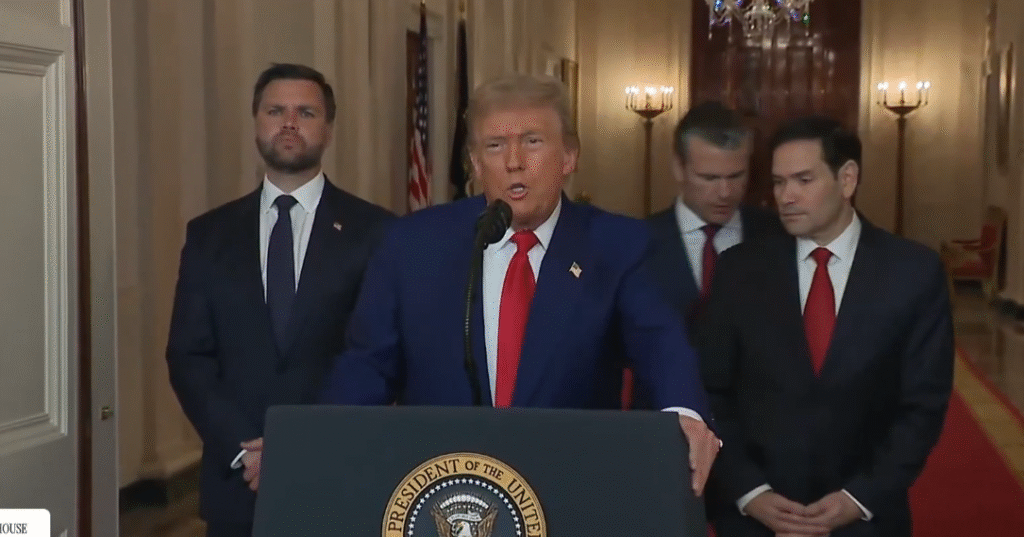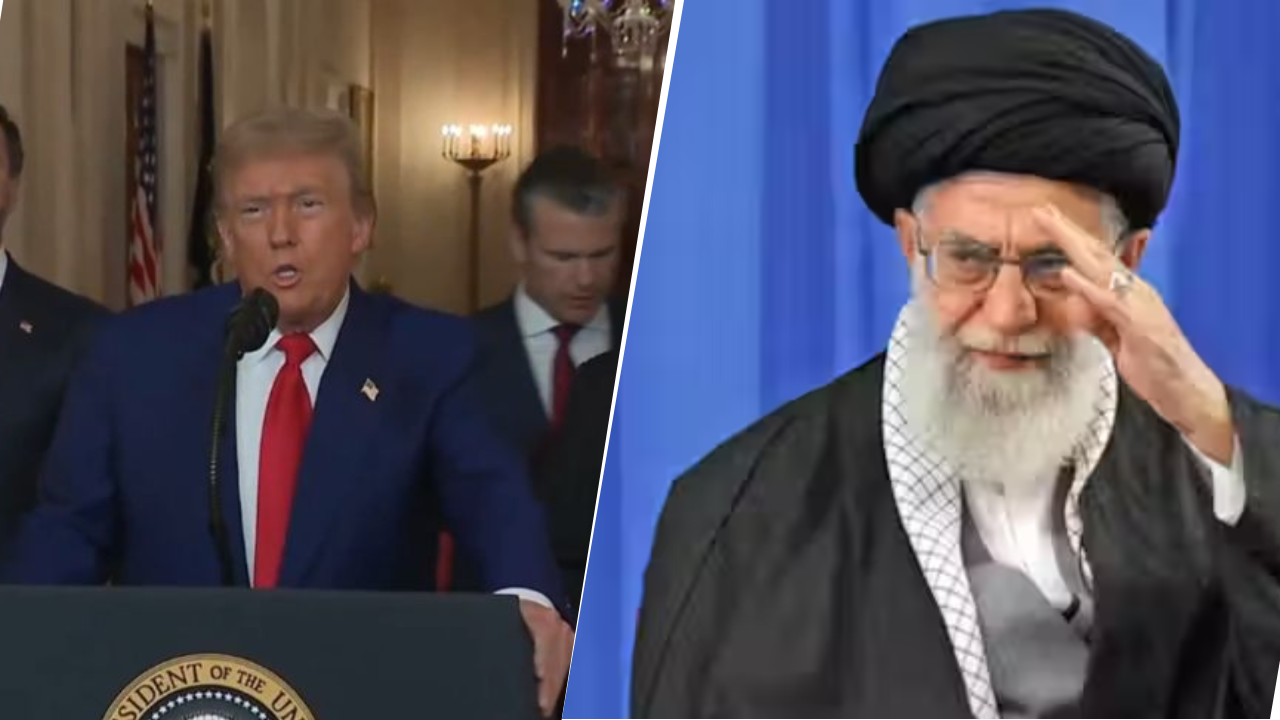Trump Hails ‘Spectacular Success’ In Address To The Nation As US Airstrikes Annihilate Iran’s Nuclear Facilities

In a significant escalation U.S. forces carried out coordinated airstrikes on Iran’s Fordow, Natanz, and Isfahan nuclear enrichment sites. President Donald Trump, addressing the nation from the White House, described the mission as a “spectacular military success,” claiming Iran’s uranium‑enrichment capabilities have been “completely and totally obliterated”.
According to U.S. officials, B‑2 stealth bombers dropped six bunker‑buster bombs on Fordow deep inside a mountain, while 30 Tomahawk cruise missiles hit Natanz and Isfahan. Trump warned Iran against retaliating and suggested more strategic strikes await if Tehran continues nuclear pursuits.
The operation marks Washington’s first direct military engagement in Iran’s conflict with Israel, following a week of Israeli strikes against Iranian air‑defenses. Trump lauded Prime Minister Benjamin Netanyahu and the Israeli military, describing the collaboration as unprecedented coordination .
U.S. sources say Tehran was quietly informed the strikes were limited and not intended to topple the Iranian regime . This came ahead of planned diplomacy involving U.S. envoys in Oman and Rome, which collapsed in mid‑June.
Washington officials report no U.S. aircraft losses. Trump also posted on Truth Social: “A full payload of BOMBS was dropped on the primary site, Fordow. All planes are now outside of Iranian airspace and safely on their way home”
Israeli military and government sources confirmed advance coordination. Former Israeli defence minister Yoav Gallant described the strikes as a “bold decision” that significantly impaired Iran’s nuclear threat
In Iran, the Atomic Energy Organization confirmed the sites were attacked but claimed no radioactive contamination; Tehran has condemned the strikes as “brutal acts” violating international law.
Global markets reacted sharply, with oil prices spiking on fears of broader instability. The UN Security Council is set to convene emergency sessions, while NATO countries and regional powers call for urgent de-escalation .
Within the U.S., political responses are mixed. Supporters, including GOP and some Democratic senators, argue the strike was necessary to prevent nuclear terrorism. Critics, including constitutional scholars and legislators like Rep. Thomas Massie and Sen. Hakeem Jeffries, question presidential war powers and insist Congress should have been consulted
Experts caution that Iran might retaliate via proxies — including the Houthis in Yemen — endangering U.S. forces in the region. The use of advanced bunker-busters to destroy deeply buried facilities underscores the high stakes.
Since April, U.S.–Iran talks in Oman and Rome sought to revive nuclear accords and impose limits via diplomacy, but collapsed around mid‑June after Israeli air raids intensified.Previous Israeli strikes in April 2024 mainly hit radar sites and were less destructive. With Fordow deeply hardened inside Qom’s mountains, satellite data earlier in June showed limited Israeli damage, necessitating U.S. intervention






